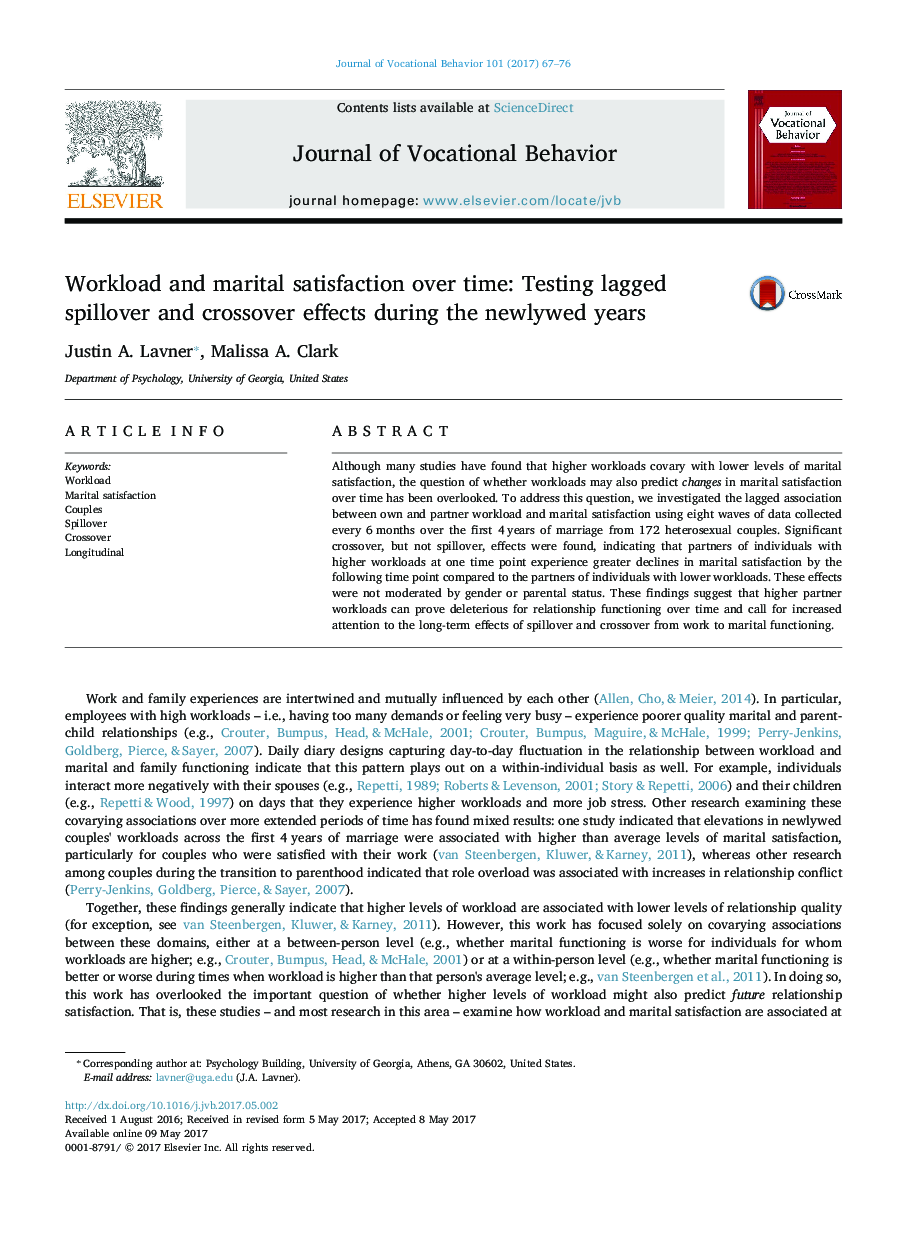| Article ID | Journal | Published Year | Pages | File Type |
|---|---|---|---|---|
| 5035074 | Journal of Vocational Behavior | 2017 | 10 Pages |
â¢Higher workloads are related to lower marital satisfaction, but this relationship has rarely been examined longitudinallyâ¢We examined spillover and crossover effects of workload on subsequent marital satisfaction using 6 month lags over 4 yearsâ¢We found significant crossover effects of partner workload on changes in own marital satisfactionâ¢There are long-term consequences of higher workloads on family life
Although many studies have found that higher workloads covary with lower levels of marital satisfaction, the question of whether workloads may also predict changes in marital satisfaction over time has been overlooked. To address this question, we investigated the lagged association between own and partner workload and marital satisfaction using eight waves of data collected every 6Â months over the first 4Â years of marriage from 172 heterosexual couples. Significant crossover, but not spillover, effects were found, indicating that partners of individuals with higher workloads at one time point experience greater declines in marital satisfaction by the following time point compared to the partners of individuals with lower workloads. These effects were not moderated by gender or parental status. These findings suggest that higher partner workloads can prove deleterious for relationship functioning over time and call for increased attention to the long-term effects of spillover and crossover from work to marital functioning.
